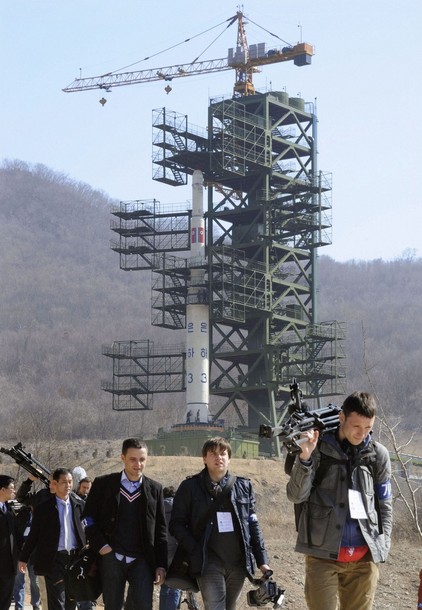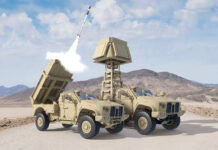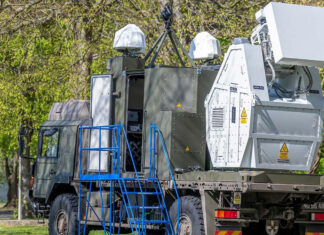Rumors have been swirling throughout international news media outlets in recent days indicating that North Korea would attempt another satellite launch in the near future. On 1 December Pyongyang confirmed that the rumors are true.
The Korean Central News Agency (KCNA), the North’s official state-run news service, announced that the reclusive nation would make another launch attempt to place a satellite in Earth orbit atop a three-stage rocket sometime between 10 and 22 December. The North’s announcement stated that the rocket would follow a “safe flight path” to the south along a route between the Korean Peninsula and the Chinese mainland.
Pyongyang’s announcement did not come as a complete surprise; satellite images disclosed the movement of suspected rocket components from Pyongyang to the North’s Sohae launch site on the northwest coast in November fueling a flurry of media speculation that another rocket launch was in the offing.
Should this launch attempt become a reality, it would represent Pyongyang’s fourth attempt to place a satellite into orbit. This latest announcement comes a mere eight months after a highly-publicized failure in April that heightened tensions throughout the Pacific region.
The announcement included quotes from the Korean Committee for Space Technology claiming that the North’s scientists and technicians had identified and corrected the shortcomings that caused an attempted launch to fail in April 2012. Some Western analysts have expressed the opinion that eight months between launch attempts did not allow sufficient time to identify and fix whatever it was that caused the April failure.
South Korea, the United States, and other Asian-Pacific nations have long considered such launches by the North to be nothing more than a “cover” for long-range missile testing and a clear violation of North Korea’s international agreements. A formal UN resolution also prohibits North Korea from engaging in any long-range missile testing.
KCNA’s announcement identified the satellite as being a second Kwangmyongsong-3 to be carried aloft by another Unha-3 rocket. The rocket and satellite carry the same names as the vehicles used in the April launch failure. KCNA reported that the satellite is a polar-orbiting vehicle intended for Earth observation and reiterated the North’s position that they had every right to pursue a peaceful space program.
This launch attempt will be Pyongyang’s second effort under the leadership of Kim Jong-un. KCNA’s announcement also claimed that this launch was being readied at the request of the nation’s late leader, Kim Jong-il. December 17 will mark the one year anniversary of Kim Jong-il’s death and Kim Jong Un’s eventual ascension to power.
The timing of this planned launch follows a well-known historic pattern almost routinely practiced by Pyongyang’s leaders in recent years. The North has often made use of rocket and missile launches, nuclear tests, and other provocations during times of political leadership changes. In 2009, following President Obama’s election, Pyongyang engaged in a nuclear test and a rocket launch in the span of only four months. These activities might be seen as an attempt to test the willpower of new leaders or could be an attempt to gain some form of concessions not achieved before.
A North Korean launch now, with South Korea’s presidential election scheduled for 19 December, could add a new dimension to a close contest between the South’s liberal candidate Moon Jae-in and the ruling conservative party’s candidate Park Geun-hye. Pyongyang is naturally inclined to prefer a liberal leader in the South, a leader more willing to negotiate contentious issues of common interest to both nations. Moon Jae-in has publicly supported a resumption of aid to the North and resurrection of joint economic endeavors that were cancelled by the South’s current conservative president, Lee Myung-bak. Should Ms. Park be elected, she is likely to continue the hardline policies implemented by President Lee much to Pyongyang’s detriment and displeasure.
Should the North proceed with this scheduled launch, it may prove to further complicate Pyongyang’s precarious international position. South Korean voters are known to be an unpredictable bunch and a rocket launch could swing the election in favor of the conservatives thus defeating the North’s efforts to have a liberal national leader in place in Seoul.
Japan has also scheduled parliamentary elections for 16 December at a time when nationalistic fervor is sweeping the nation with strong encouragement from the ousted Liberal Democratic Party (LDP) looking to return to power after suffering an unexpected defeat in 2009 at the hands of the Democratic Party of Japan (DPJ). Shinzo Abe, leader of the LDP, has been advocating a return to a more hardline, nationalistic stance for Japan especially in its relations with China and both Koreas. A North Korean rocket launch would likely strengthen the LDP’s chances of returning to power and would further harden Japan’s stance toward Pyongyang.
A successful launch would go far in solidifying Kim Jong-un’s leadership position. It would also raise tensions throughout the Pacific and lend greater urgency to international efforts to reign in the North’s ambitious program to develop long-range ballistic missiles capable of reaching as far as the continental United States. Another launch failure would be a blow to the North’s prestige and to Kim Jong-un, a scenario that itself would heighten security concerns throughout the region.
Of some surprise is the fact that Kim Jong-un met with a Chinese delegation only one day before the launch announcement was made public. Some analysts believe the Chinese delegates were in Pyongyang to convince Kim to cancel the launch. If this is true, then the launch announcement can be viewed as an emphatic rejection of China’s political guidance and Kim’s disregard of the North’s only ally, a public humiliation China’s new leaders are not likely to forget.
Of some note is the fact that North Korea has not yet, to anyone’s knowledge, notified the International Civil Aviation Organization or the International Maritime Organization of its plans to proceed with this launch. The North provided notification to both organizations prior to previous launches, but not this time. Pyongyang has also not filed documentation identifying the frequency the satellite would be using for communications.
Also of note is the cancellation of South Korea’s scheduled satellite launch only two days prior to the North’s announcement. South Korean specialists cited “technical difficulties” as the reason for scrapping an attempt to launch its first satellite from its own soil.
Whatever the underlying reasons may be for this launch, much is at stake for the North and for Kim Jong-un. From a practical standpoint, there is little for Pyongyang to gain and much to lose.

















